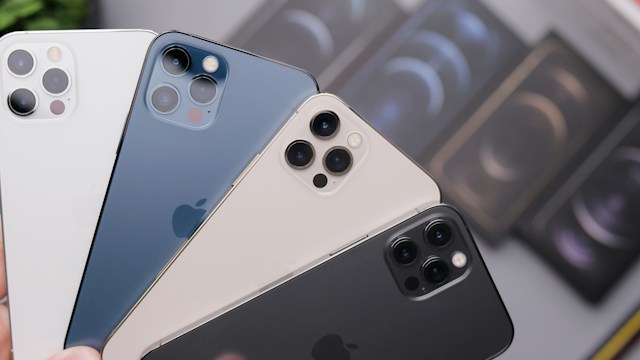When was the last time you used your desktop PC? The desktop personal computer may become obsolete and irrelevant. Millennials grew up on these small form factor mobile devices with little disregard for these “mammoth-sized computer towers of the past. The average user doesn’t need a powerful CPU, or lots of RAM to perform basic computer tasks. Let’s face it: traditional computer desktop sales have declined. The market is flooded with smartphones, phablets, hybrids, tablets, and notebooks with various subcategories….it is staggering! We succumbed to their ease of use, mobility and convenience. Are we just turning into passive content consumers?

Down-scaled and re-imagined
Desktop computers, notebooks and workstations have been in noticeable decline in sales for years (lowest since 2007). Blame it on the proliferation of hundreds of smaller form factor devices or the rise in price of computer components. Ugly “cookie-cutter” beige and black “Windoze” computer boxes are not the norm. Apple revitalized and revolutionized the mass personal computer market with new innovative, sleek, user-friendly machines and devices. Nowadays we can find everything from all-in-one devices, tablets, hybrids, and netbooks to flash drive-sized computer sticks (NVMe)! There will still be a place for PC enthusiasts, gamers and computer servers for enterprises, but the consumer has lots of choices for colour, style, functionality and size. One of my favourite small form factor computers is the Raspberry Pi 3 which is the size of a deck of cards with very low power consumption.
Widespread adoption of Smart Phones
Apple conceived the idea of multi-touch touchscreen mobile phones (launching the iPhone in 2007) with a simple uncomplicated interface and there is no turning back. Smartphones are small computers that conveniently fit into your jeans pocket allowing anyone to become an expert. No waiting for a machine to boot up, the smartphones use a suspended or sleep state to save on power. Unless you work in a niche business or use proprietary business software which involves a lot of CPU and RAM, most productivity apps will work just as well on a smartphone. The popularity of such devices is apparent and has become the social norm.

Are we losing our “computer smarts?”
Are we succumbing to the ease of use and convenience of smartphones and tablets that we are losing our computer smarts? Millennials rarely deal with Windows computer woes i.e. “blue screen of death.” The average user still needs basic computer fundamentals, but the experience is “dumbed down” with Windows 10. Most people can’t bother to learn Windows 10 on a large desktop computer which lacks portability and mobility. Rather than figuring out the intricacies of an operating system, users turn to their smartphones instead. Touch keyboards and the multi-touch screen force users to make compromises and change their workflow. Hard to get immersed in work when you have this “handicap” and a new learning curve.
Passive content consumer or creative producer?
Can “real work” be done on a Smart device is a good question. Why use a desktop computer when you can just click on your favourite app to surf the internet, read the news on Flipboard, play music, send email or dictate a note in Evernote? Some people have caveats about creating content and doing “real work” on an iPad or Windows tablet. We can’t blame them! Manufacturers have bundled more apps on their portable devices to encourage content creators, but they are “watered-down” versions or the workflow becomes tedious. Some people try to do both, but generally, we are becoming lazy, passive and complacent using smart device technology. Passive content consumers can stream movies, TV shows and music and even buy digital copies all from the comfort of their “Lazy Boy”.
Cloud storage as the digital hub
People are no longer relying on their desktop personal computer to be the central digital hub: scanning documents, uploading music to their MP3 player or composing a resume using Microsoft Word. In the last 7 years, cloud-based storage solutions have made some leaps as a digital central hub and have untethered the desktop personal computer. Apple was the first to offer tight integration with an end-to-end solution (ecosystem) for sharing media across their line of consumer products. iCloud performs seamless syncing online allowing the user to work on the same file across any Apple portable device or Mac. Companies like Google and Microsoft have similar cloud-based storage solutions, but they are not nearly as elegant or tightly integrated. Editing and sharing documents anywhere you can access the Internet, has never been easier!
Smart Home Hubs
Home automation using Smart Home Hubs like SmartThings, Wink or Apple HomeKit devices could potentially act as a central hub in your home. Amazon Echo is a series of smart home devices that control things around the house with the help of a computer assistant, named Alexa. Google has their version too! Some future smart home hubs may also integrate technology called The Internet of Things (IoT), virtual reality (VR) and augmented reality (AR). The computer assistant answers computer queries, plays music, closes the drapes and even turns on your “Smart Appliance” etc. Smart Home Hubs seem promising, but they are relatively new and still need to mature. Just a matter of time until there is a standard home automation solution.
Consumers need to adapt to the evolving technology
Unlike the desktop personal computer, the smartphone, tablets and other portable devices continue to thrive and evolve. Unfortunately, this “dumbed down” experience with its easy-to-use interface has made the average user a passive content consumer. Look at the numerous Android and Apple iOS devices on the market. Do we use them for “work” or “play” or somewhere in between? Smartphones and other portable devices are maturing and getting more sophisticated; users are not as dependent on large desktop PCs to do real work. We need to provide training and education on basic computer fundamentals and for emerging new technologies in the future. Exciting times ahead!

